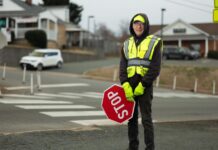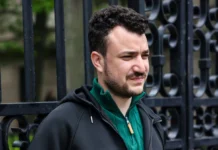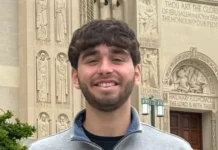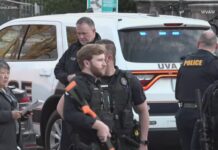On Sunday, a suicide bomber in Turkey’s capital, Ankara, killed 37 people and injured 125. The Kurdistan Freedom Falcons. a left-wing militant group based in Iraq-Kurdistan, claimed responsibility for the car bomb in one of the busiest shopping districts of the city.
The Kurdistan Freedom Falcons are a terror sect of the PKK, or the Kurdistan Workers’ Party. The organization has taken responsibility for a number of recent demonstrations across Turkey, including a convoy attack last month that killed 29 people. In a statement on its website, the Freedom Falcons proclaimed that the Ankara attack was retaliation for continuing security operations in Kurdish cities and warned that it would strike again.

“We claim the suicide attack that was carried out on the evening of 13 March…in the streets of the capital of the fascist Turkish republic,” the statement read. “We claim this attack targeting centers…where decisions to massacre Kurdish people are made. This action was carried out to avenge the 300 Kurds killed in Cizre as well as our civilians who were wounded.”
The Tak identified the perpetrator of the attack as 24 year old Seher Çağla Demir, who is the first female suicide bomber in its ranks.
University of Virginia politics professor Elizabeth Thompson, who focuses on Middle Eastern studies, notes that the terror organization was originally political in nature.
“The PKK was founded in the late 1970s by Kurds in Eastern Turkey who were dissatisfied with official discrimination against Kurds. In 1984, under the leadership of Abdullah Ocalan, they launched an armed revolt,” Thompson said. “The Turkish state has grown very wary of the Kurds since the outbreak of civil war in Syria. The PKK was founded in an era when many peoples in the then-called Third World believed they could attain rights and build strong nations through armed revolt.”
This is the third significant mass suicide bombing on Ankara in five months. Sunday’s bombings joined the several other enacted threats towards Turkey that have escalated since the war in Syria began.
Associate professor David Waldner, who specializes in Middle Eastern politics, says that suicide bombings were a rarity when he began his studies. Now, Waldner views suicide bombings as “horrifyingly common.”
“On the one hand, it appears that the first two attacks [in Ankara] were carried out by the same group—two of the bombers may have been brothers,” Waldner said. “Insofar as a small network is involved, that network can be broken up and the string of attacks brought to an end. On the other hand, there is no reason to believe this is a small network, and there may be multiple networks…The two main suspects are the PKK, the (Turkish) Kurdish insurgent group, and of course ISIS.”
Waldner anticipates that these attacks will have profound implications for Turkey’s stability in the future.
“The peace process has totally broken down. And this is tearing Turkey apart,” Waldner said.
Several foreign embassies in the capital city have issued travel and security warnings, urging people to avoid crowded public places and using public transportation ahead of Newroz, the Kurdish new year celebrations occurring on March 21st. Turkey now remains on high alert for future attacks and has launched massive security operations and blanket curfews for the indefinite future.
















